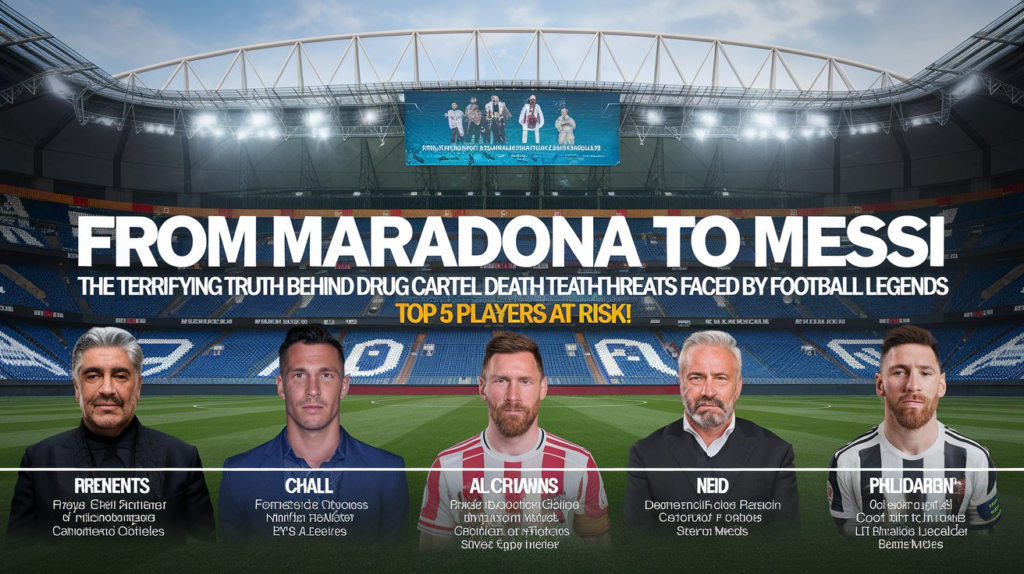
“From Maradona to Messi: The Terrifying Truth Behind Drug Cartel Death Threats Faced by Football Legends – Top 5 Players at Risk!”
Introduction: The Dark Side of Football
Football, often called the “beautiful game,” has captivated billions around the world. Its magic lies in the raw emotions it stirs, the breathtaking skills displayed, and the sheer passion of fans. But behind the dazzling lights of stadiums and the cheering crowds, some of the sport’s greatest icons have faced harrowing challenges—far beyond injuries or pressure from fans. A darker force looms for certain players: the threat of violence from drug cartels.
From Diego Maradona to Lionel Messi, several legendary footballers have found themselves embroiled in a dangerous game off the field, where drug lords wield power and intimidation. These players, who symbolize hope and inspiration to millions, have faced chilling death threats from some of the world’s most dangerous criminal organizations.
This article takes a step-by-step journey through the lives of five football legends who confronted the terrifying reality of drug cartel threats and how they emerged from these harrowing experiences.
1. Diego Maradona: The Golden Boy and His Dark Connections
Diego Maradona, revered as one of the greatest footballers to ever play the game, was more than just a player. His life was a symbol of hope for the people of Argentina. However, Maradona’s brilliance on the field was matched by his turbulent life off it. During the late 1980s and early 1990s, Maradona became entangled in a world that would lead him down a dangerous path.
Maradona’s connections to the mafia, particularly the notorious Camorra crime syndicate in Naples, where he played for Napoli, were well-documented. His extravagant lifestyle, drug addiction, and association with dangerous individuals led to mounting problems. It was widely rumored that Maradona faced threats from drug lords who were displeased with his erratic behavior, particularly when he tried to distance himself from their influence.
Maradona’s Response: Despite facing these threats, Maradona continued to captivate audiences with his incredible skills. But the pressure from both his personal demons and the cartel left lasting scars on his life. His eventual exile from Napoli and struggles with addiction were partly influenced by these shadowy forces, showing that even a footballing god could be vulnerable to the underworld.
2. Lionel Messi: The Humble Hero in the Crosshairs
Lionel Messi, perhaps the greatest player of all time, is known for his humility and quiet demeanor. But not even the greatest of talents can escape the dark forces lurking behind football’s glitzy exterior. In 2018, Messi’s family found themselves the target of death threats from drug cartels in Argentina.
The cartel specifically targeted Messi’s hometown of Rosario, which had become a battleground for violent gangs. In a particularly shocking incident, gunmen attacked a business owned by Messi’s family. They left a chilling message: “Messi, we are waiting for you.” The threats were designed to intimidate Messi, leveraging his family as collateral.
Messi’s Response: Despite the dangers, Messi remained resolute, refusing to let these threats dictate his life or career. While the incident left an indelible mark on Messi and his family, his focus on football never wavered, proving that even in the face of fear, greatness can endure.
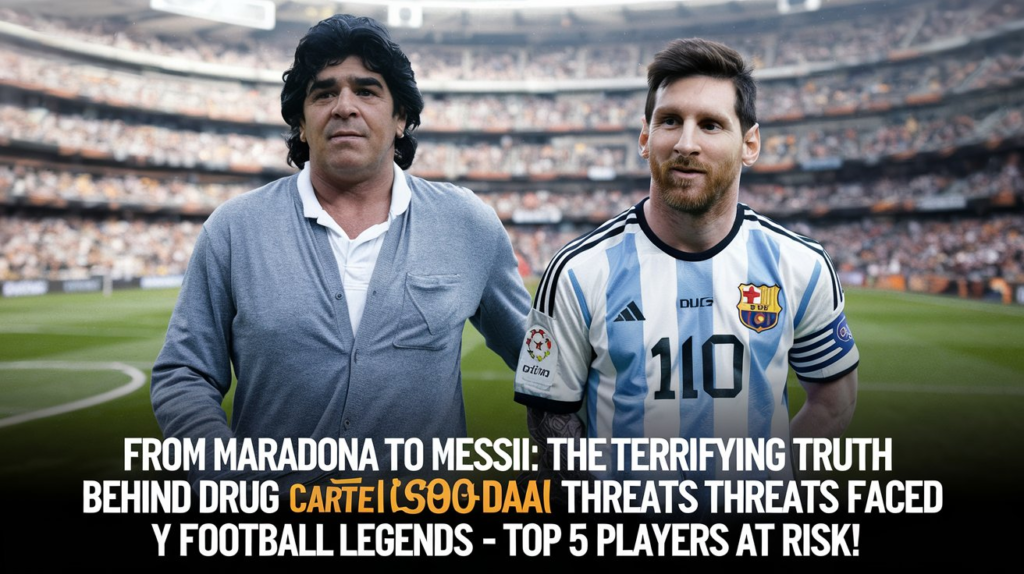
3. Javier Hernández (Chicharito): The Mexican Star in Peril
Javier “Chicharito” Hernández, Mexico’s most famous football export, has enjoyed a stellar career playing for clubs like Manchester United, Real Madrid, and LA Galaxy. However, like many high-profile figures in Mexico, Hernández’s fame made him a target for dangerous individuals. Mexican drug cartels, known for their ruthlessness, allegedly issued death threats against Hernández, aiming to exploit his fame for their gain.
Mexico’s drug cartels wield immense influence, and public figures like Hernández often find themselves entangled in their deadly web. While exact details of the threats were never made public, it’s well known that Hernández took security measures, including limiting his public appearances in certain areas of Mexico.
Chicharito’s Response: Throughout his career, Hernández remained a symbol of hope for many Mexicans. His ability to maintain composure and focus despite the dangerous environment around him is a testament to his resilience and love for the game. While the threats were real, Chicharito’s determination allowed him to continue representing his country and succeeding on the world stage.
4. Carlos Tevez: The Survivor of the Streets
Carlos Tevez’s life story reads like a Hollywood script. Born into one of Buenos Aires’ most dangerous neighborhoods, Tevez was no stranger to violence. His rise from the streets to global stardom is nothing short of remarkable, but even as he made a name for himself in football, the shadows of his past were never far behind.
Tevez’s family was targeted by violent criminal gangs, and in 2014, his father was kidnapped. Kidnappings for ransom are a grim reality in Argentina, and Tevez’s fame made his family a prime target. His father was eventually released after a ransom was paid, but the experience shook Tevez to his core.
Tevez’s Response: Carlos Tevez is a fighter, both on and off the field. He used the trauma of his early life and the kidnapping incident to fuel his passion for football. Tevez’s tough, relentless style of play reflected his gritty background, and despite the constant threats to his family, he never backed down from his love for the game.
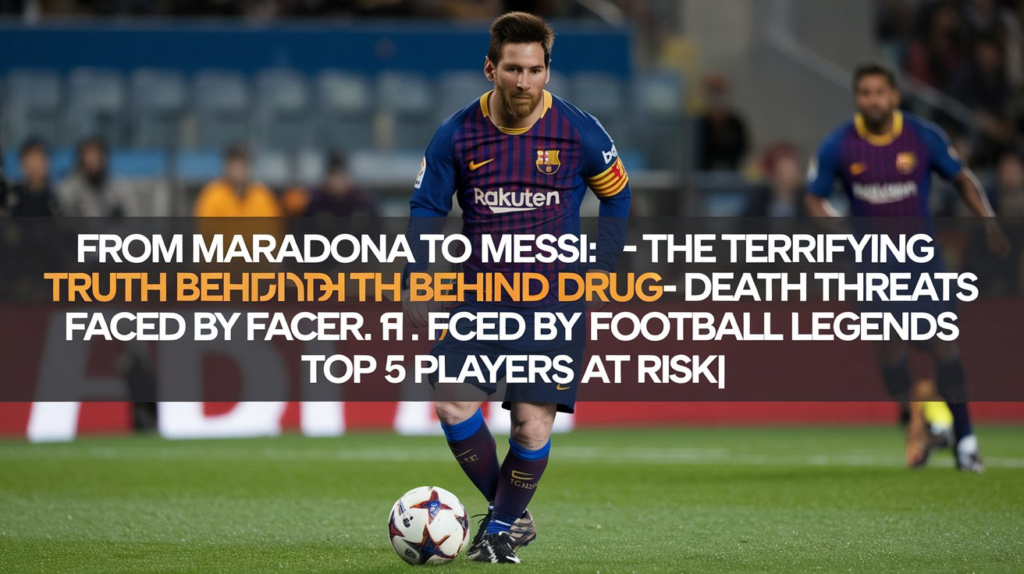
5. Andrés Escobar: The Tragic Tale of a Gentle Defender
The story of Andrés Escobar is perhaps the most tragic in football’s history. Known as the “Gentleman of Football,” Escobar was a beloved defender for both Colombia and Atlético Nacional. His mistake during the 1994 World Cup—a self-goal in a match against the United States—led to Colombia’s elimination from the tournament. In a country already plagued by drug violence, this unfortunate moment sealed Escobar’s fate.
In the aftermath of the World Cup, Escobar was shot and killed outside a nightclub in Medellín. It is widely believed that his murder was a direct result of his mistake on the pitch, with drug cartels linked to the betting industry taking revenge for Colombia’s loss.
Escobar’s Legacy: Andrés Escobar’s death remains a haunting reminder of the deadly intersection between football and the criminal underworld. His murder sent shockwaves around the world, showing just how far cartels would go in their pursuit of control and influence. Escobar’s memory lives on as a symbol of what the sport stands for—passion, dedication, and love—despite the dangers that sometimes accompany it.
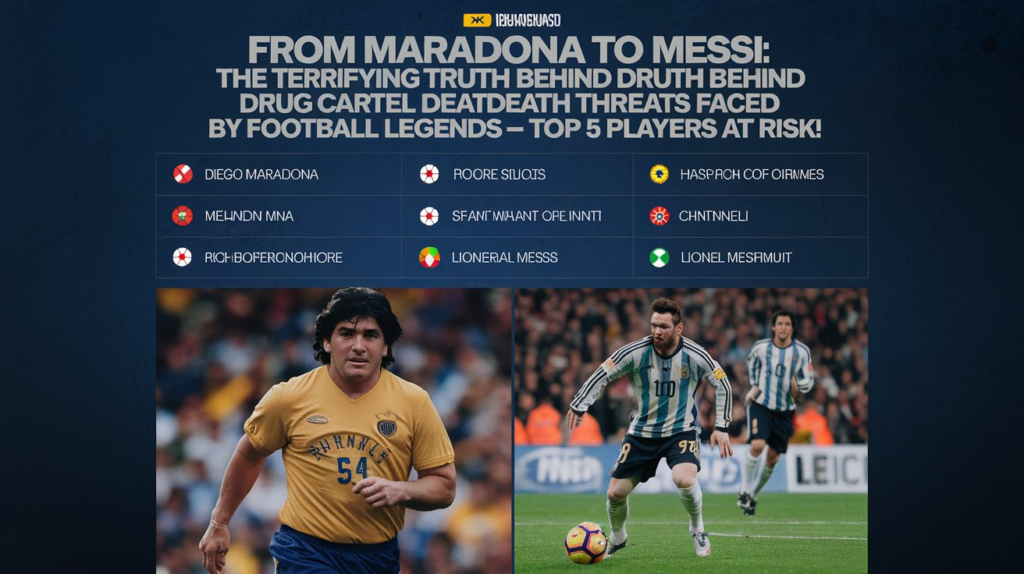
FAQ: Everything You Need to Know
Q1. Why do drug cartels target football players?
Drug cartels target football players because of their immense public influence, wealth, and high-profile status. In some cases, cartels may attempt to extort money or use players’ fame to further their criminal enterprises.
Q2. Have any players ever publicly spoken about these threats?
Yes, some players, like Carlos Tevez, have spoken about their experiences with threats or violence, particularly in countries where criminal organizations hold significant power. However, many players choose to remain silent due to the fear of retaliation.
Q3. How do these threats affect players’ performance?
The emotional toll of such threats can be immense. For players like Lionel Messi and Javier Hernández, it takes tremendous mental fortitude to continue performing at the highest level under such pressure. While some players manage to persevere, others may struggle with the anxiety and fear that come with being targeted.
Q4. What steps are taken to protect footballers from these dangers?
Security measures for high-profile footballers vary. Some players hire private security, while others are given protection by local authorities, especially in countries with a significant cartel presence. Clubs and national teams also ensure that players are protected during high-risk periods.
Q5. Is the problem of cartel influence in football ongoing?
Unfortunately, yes. In countries like Mexico, Colombia, and Argentina, the power and reach of drug cartels continue to affect various aspects of life, including football. However, the global attention and security measures are improving to reduce the risks faced by players.
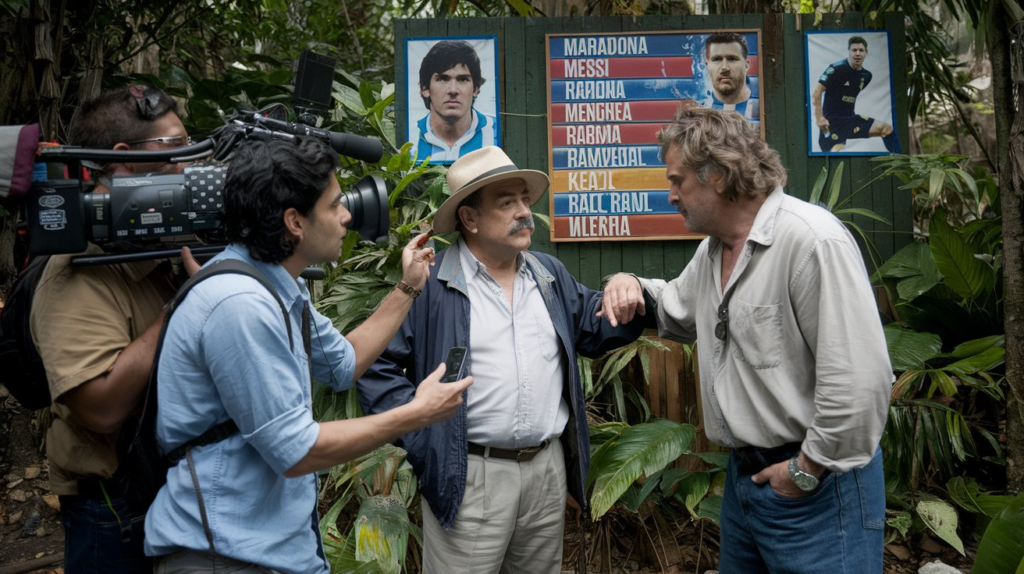
Conclusion: Courage Beyond the Pitch
The stories of football legends like Maradona, Messi, and Tevez reveal the dark side of fame and fortune. These players, celebrated for their skills on the pitch, have faced unimaginable challenges off it. Yet, their stories are also a testament to the human spirit’s resilience. Even in the face of death threats from drug cartels, they continued to inspire millions with their performances and unwavering determination.